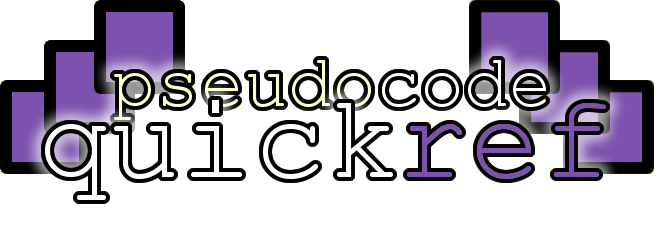

This resource is designed as a quick reference or revision guide. It has not been endorsed by any exam boards. If you spot any mistakes, please let me know and I'll fix them asap.
This website aims to give a quick reference for VB.NET, Python and C# and pseudocode and is aimed primarily at teachers & students working towards a GCSE or A Level in Computer Science
VB.NET, Python and C# are programming languages designed to be understood and followed by computers. Pseudocode is not a programming language: it's written to be understood by humans so that they can turn it into any programming language.
Each skill has example code in Python, C#. You can also enable VB.NET and Pseudocode for OCR GCSE if you'd find that useful.
If you know what you're looking for, use the search bar above the categories list.
Integers are whole numbers (with no decimal places).
Constants store a value that is set once and then never changes.
Integer constants let you give a whole number a name so you can use it to make your code easier to read or to set options for your code that the user wont be able to change.
In this example, a constant called NUMBER_OF_TRIES is set to the integer value of 10
Loading...